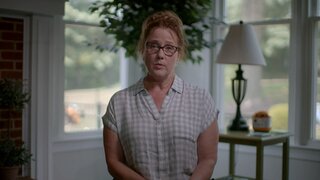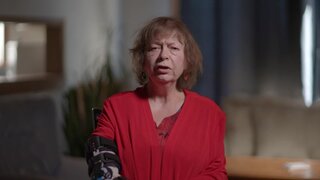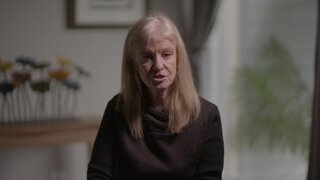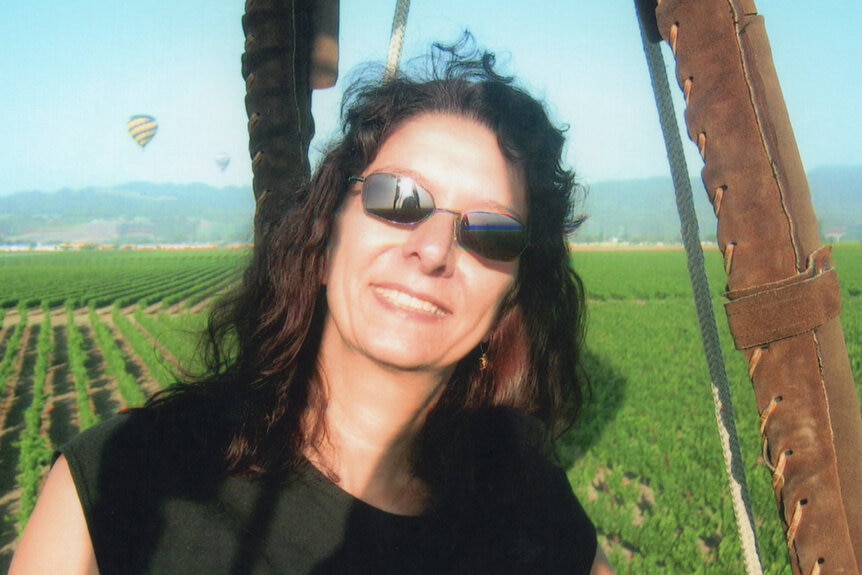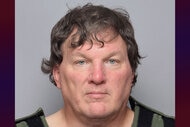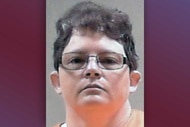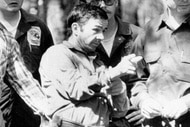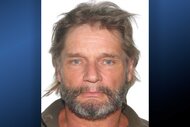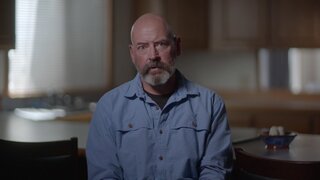Create a free profile to get unlimited access to exclusive videos, breaking news, sweepstakes, and more!
'What About The Men I've Killed?' Man Yells At Judge After Being Called A Coward For Murdering Women
When a woman vanished from her home in Anchorage, Alaska, police soon learned danger was lurking near her home.
Mindy Schloss was a public health nurse, someone compassionate and brave enough to go out and bring medical treatment to underserved communities in Alaska. She had just signed a lease on a new office space to start her own private practice as a psychiatric nurse practitioner. But in August 2007, her life was cut short by a potential serial killer.
On August 7, 2007, one of Schloss' friends contacted the Anchorage police department. While Schloss, 52, lived in Anchorage, she worked shifts in Fairbanks as a nurse. Schloss hadn't shown up for work, and they were concerned.
Police went to her home to investigate, and found one of Schloss' friends, who was house-sitting while Schloss worked in Fairbanks. The friend said the house had been in a total disarray, "just not in a state Mindy would have left it when she went to work," Pam Perrenoud, a retired detective with the Anchorage Police Department, told "Fatal Frontier: Evil In Alaska," airing Sundays at 7/6c and 8/7c on Oxygen.
The friend added that Schloss never drove her car to the airport because parking was too expensive, so it was strange her car wasn't in the garage. "The friend was very sure something had happened to her," Perrenoud said.
Schloss did have a long-term boyfriend, Robert Conway, but he had an alibi and was quickly dismissed as a suspect. Authorities also spoke to neighbors who might have seen anyone or anything unusual — and many noted that Schoss' direct next-door neighbors were a problem home in the neighborhood. They were younger and rowdy, often throwing parties, and neighbors indicated Schloss had run-ins with them before. No one answered the door when authorities attempted to talk to them.
Investigators also got to work on checking Schloss' bank account. They learned two $500 cash withdrawals had been made after she was last seen alive. When they pulled surveillance footage of the ATM machine, they discovered Schloss wasn't the one who made the withdrawals: the grainy images showed an unidentifiable man.
Schloss' car was soon located, too, after a friend noticed it at the airport. Authorities sent the car in for processing to see if they could pull any DNA from it. Investigators returned to her neighborhood, and this time two of the next-door neighbors, two young men, agreed to talk with police.
"They were not forthcoming ...They were evasive about who lived inside the house," Perrenoud told producers.
Investigators then questioned another neighbor, Kathy Easley, who they say seemed nervous and uninterested in talking with them. But the next day, she called the police department and revealed she had been nervous because she had a strange run-in with a person in the "problem" home. His name was Josh and she'd noticed him watching her while she spoke to police.
"[He said], 'I just wanted to come talk to you. I know police are around in the neighborhood. I don’t want you to tell them I live next door. I have a warrant out for my arrest.' I was like, 'For what,' and he was like, 'I broke into a drug dealer’s home,'... I was like, 'That doesn't even make sense … it did freak me out a little bit," Easley told producers of the conversation.
Investigators were then able to determine who the Josh was next door – and they were horrified. It was Josh Wade.
"Anyone who was in law enforcement up here at the time knew his name," Jolene Goeden, an FBI agent, told producers.
Wade had been accused of murder seven years earlier. A woman named Della Brown had been hit in the head with the rock. However, Wade was ultimately acquitted of the murder charge.
But Wade, at this point, had vanished. Still, authorities managed to get a search warrant for the home, and found a vital clue: the same coat the mystery man was wearing in the ATM footage, with a receipt with Schloss' bank account number on it in the pocket. A massive search was now underway for Wade.
On September 2, 2007, a tip came into the Anchorage Police Department. A woman who said she was friends with Wade told police he had just shown up to her home looking for a ride. A SWAT team descended on the area, and they discovered he had knocked on another nearby acquaintance's door. They had let him in and he was now holding a brother and sister hostage in the home.
A standoff ensued for several hours, ultimately ending when Wade agreed to talk to his attorney, who persuaded him to go with authorities. But when he was brought in for an interview, he refused to speak. Investigators even tried to trick him by claiming they had already spoken with Schloss.
"Josh Wade came within half an inch of saying, 'No, you didn’t, she’s dead," Steve Skrocki, a prosecutor with the U.S. Attorney’s Office, recalled.
Without a confession and a body, it would be difficult to get Wade convicted of murder. But on September 13, 2007, a municipal worker doing site surveying work in the woods came across the body of Mindy Schloss. She had been shot in the head.
Around this time, the DNA results from Schloss' car came in. They were a match to Wade. Wade's phone was also recovered. It had a picture on it of a gun that was the same kind used to kill Schloss.
Wade was hit with a variety of state and federal charges, including carjacking, theft, and bank fraud. The death penalty was on the table, so Wade sought a plea deal, in which he would also confess to the murder of Della Brown.
During the sentencing, the judge gave Wade 99 years in state prison. If he was still alive at the end of that or if he was ever paroled, Wade would be sent over to federal prison. The judge called Wade a coward for murdering women, and that's when Wade erupted.
"He got very agitated and said back to the judge, 'What about the men I've killed?'" Skrocki told producers.
Wade's attorneys grabbed him before he could do anything else. But in 2014, Wade went to authorities to again make a deal. He would confess to the murders of three men if he could switch his sentences and first serve the federal convictions instead of the state convictions, as he felt a federal prison would be better.
"Wade told Anchorage Police Detectives and Agents from the Federal Bureau of Investigation that he is responsible for the murder of man in Anchorage in 1994 and for the murder of another man in Anchorage in 1999. Law enforcement believes Wade is referring to the unsolved murders of 38-year-old John Michael Martin in 1994 and 30-year-old Henry Ongtowasruk in 1999. Wade also stated that he killed an unidentified man on the same night he murdered Della Brown in 2000," reads a 2014 FBI press release.
The third man's identity is still unknown. Wade is now serving his sentence at a federal facility in Indiana.
For more on this case and others like it, watch "Fatal Frontier: Evil In Alaska," airing Sundays at 7/6c and 8/7c on Oxygen, or stream episodes here.
